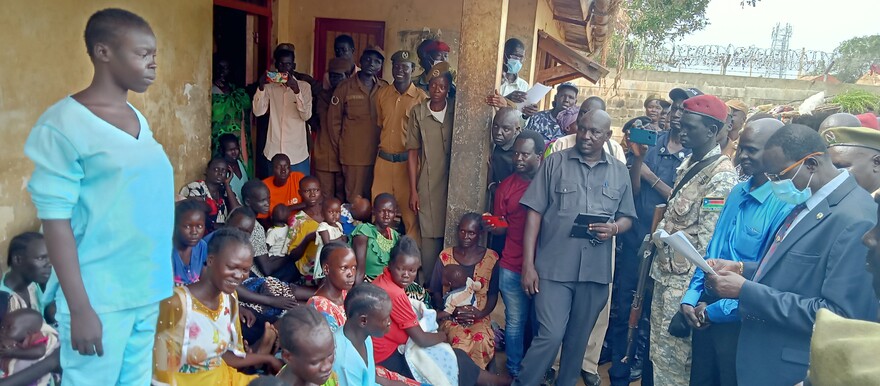Authorities at the Aweil Central Prison in Northern Bahr el Ghazal State have said 560 female and male inmates there have not had access to healthcare for the last five months after the International Committee of the Red Cross (ICRC) stopped supplying the facility with drugs.
The prison which was built during condominium rule in Sudan was designed with a capacity of 150 inmates but now often houses 560 inmates according to authorities.
The director of Aweil Central Prison, Lt. Colonel Majak Albino Akot, told Radio Tamazuj that they now take sick inmates to the Aweil Civil Hospital which also at times lack medicines.
“Concerning the convicted patients, they are in big numbers and they don’t have medicines. The current total number of the detainees is 560 and we take them to the Aweil Civil Hospital,” Col. Akot said. “We try on our own to find a few drugs if they are sent back to us empty-handed from the hospital. The ICRC which was supporting us with medicines pulled out since June.”
Several of the convicts said they face several health challenges and that they often do not get medicines even when taken to the hospital.
A convicted mother, Aguak Mangok Majok, said, “We are taken to the Aweil civil hospital when we are sick and if we do not find drugs there, we are returned back without treatment. We hope that well-wishers will supply us with the medicines and improve the hygiene at the prison.”
Santino Deng Buong who is serving an eight-year jail term also said the convicts lack medicines.
“I have been sentenced to serve for eight years. We do not have medical supplies. It is the prison authorities who are doing their best to request small quantities of drugs for us because they themselves do not have enough resources to provide medical assistance,” Deng said.




